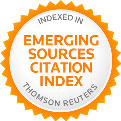Sport Management and Marketing: Overview and Recommendation for Future Research. [Gestión y marketing deportivo: Revisión y recomendación para investigaciones futuras].
Resumen
The sport industry is a large and fast growing industry. The U.S. market only counted for as much as $400-435 billion in 2012 (Plunkett’s Sport Industry Almanac). The conventional definition of the industry includes “the products offered to its buyers are sport, fitness, recreation, or leisure-related and may be activities, goods, services, people, places, or ideas” (Pitts & Stotlar, 1996, p.3). However, today’s sport market is extending its border by engulfing the entertainment industry and becoming a global cultural phenomenon (Gillentine, 2012).
Reflecting the industry’s growth, the academic field of sport management is now in strong demand to educate professionals in the sport industry. Specifically, the special task force of the U.S. National Association for Sport and Physical Education (NASPE) and North American Society for Sport Management (NASSM) defined sport management as “the field of study offering the specialization training and education necessary for individuals seeking careers in any of the many segments of the industry.” Since the Journal of Sport Management was first published in 1987, 15 scholarly journals emerged to accommodate the demand for effective communication specifically targeted toward sport management and marketing. At the same time, the growing market size of the sport industry as a cultural phenomenon received scholarly attention from other disciplines such as management, marketing and economics (Gillentine, 2012). (full text in PDF)
----------------------------------------------------------------------
References/referencias
Calder, B. J., Phillips, L. W., & Tybout, A. M. (1981). Designing research for application. Journal of Consumer Research, 8, 197-207.
http://dx.doi.org/10.1086/208856
Calder, B. J., & Tybout, A. M. (1999). A vision of theory, research, and the future of business schools. Journal of the Academy of Marketing Science, 27, 359-366.
http://dx.doi.org/10.1177/0092070399273006
Lynch Jr., J. G. (1999). Theory and external validity. Journal of the Academy of Marketing Science, 27, 367-376.
http://dx.doi.org/10.1177/0092070399273007
Shannon, J. R. (1999). Sports marketing: An examination of academic marketing publication. Journal of Services Marketing, 13, 517-535.
http://dx.doi.org/10.1108/08876049910298775
Shilbury, D., & Rentschler, R. (2007). Assessing sport management journals: A multi-dimensional examination. Sport Management Review, 10, 31-44.
http://dx.doi.org/10.1016/S1441-3523(07)70002-5
Simonson, I., Carmon, Z., Dhar, R., & Drolet, A. (2001). Consumer Research: In search of identity. Annual Review of Psychology, 52, 249-275.
http://dx.doi.org/10.1146/annurev.psych.52.1.249
PMid:11148306
Wells, W. D. (1993). Discovery-oriented consumer research. (cover story). Journal of Consumer Research, 19, 489-504.
http://dx.doi.org/10.1086/209318
Winer, R. S. (1999). Experimentation in the 21st century: The importance of external validity. Journal of the Academy of Marketing Science, 27, 349-358.
http://dx.doi.org/10.1177/0092070399273005
---------------------------------------------------------------------
Palabras clave/key words
Texto completo/Full Text:
PDF------------------------ 0 -------------------------
RICYDE. Revista Internacional de Ciencias del Deporte
![]()

Publisher: Ramón Cantó Alcaraz
ISSN:1885-3137 - Periodicidad Trimestral / Quarterly

